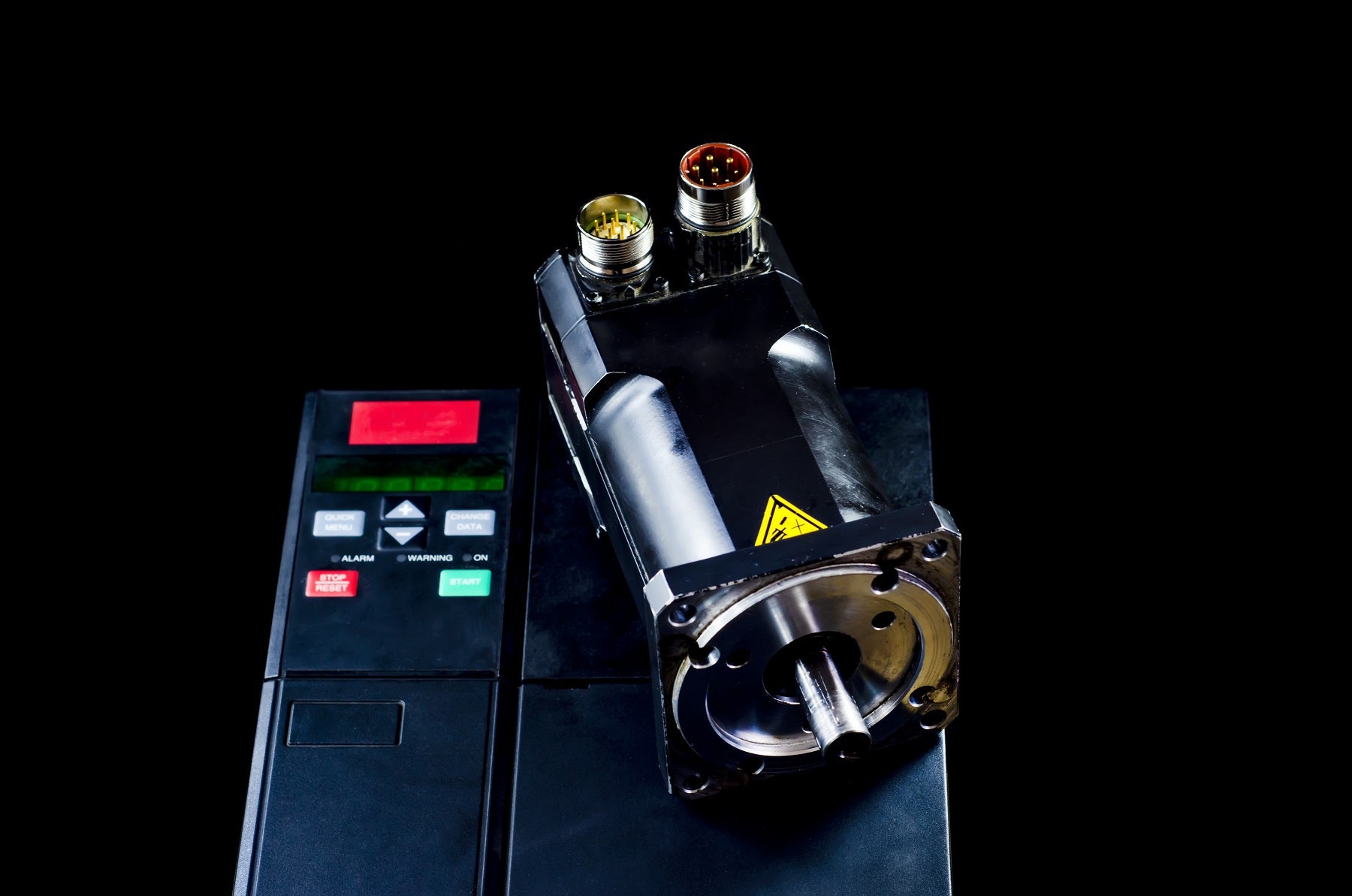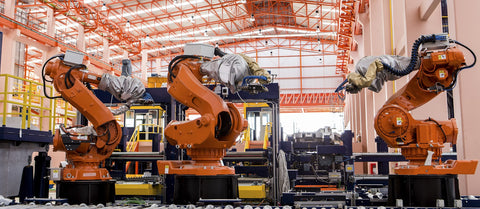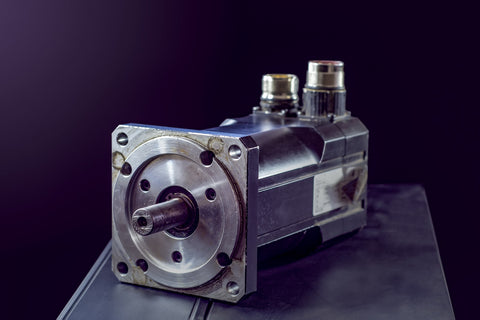
What Is a Servo Drive?
To best understand where and when to use a servo drive, you must first know what a servo drive is and how it works. Generally speaking, a servo drive is a type of electronic amplifier that is used to power electrical mechanisms connected to the drive.
The drive will automatically and constantly adjust itself based on feedback signals from connected mechanisms to account for variations in operation. It will also make adjustments when the feedback received is a deviation from the desired operations.
Servo Drive Basics
To better understand what a servo drive is, we need to look at some basics and how the drive is part of a servo system. A servo system consists of several key components, including the:
- Servo Motor
- Servo Drive
- Encoder
- Controller
The encoder is the device that provides feedback to the servo drive. The controller is the component that regulates the programming and instructions on what the servo motor must do and when it should do it. The controller also regulates the servo drive to ensure the right amount of electrical power is delivered to the motor to perform the desire operations.
Essentially, the controller sends a command signal to the drive after it has calculated the necessary operations. The drive then sends the necessary power to the motor so that it can operate at the desired speed and perform the desired functions.
Additionally, the servo drive has the capacity to control other operations, including:
- Velocities
- Positioning
- Torque
Another name used for servo drives is servo amplifiers. The reason some people call it by this name is that the drive “amplifies” the commands it receives from the controller before passing the commands to the servo motor.
Why Do Servo Drives Need a Controller?
The servo drive controller is essentially the brains of the servo system. Without the controller, the servo drive would not know what signals to send to the servo motor to control various functions and operations.
The controller also helps improve the servo system’s operations. If variances are detected, the controller can signal the drive, which, in turn, can signal the motor that adjustments are required. It is possible with the right servo system configuration to reduce errors in variances to almost zero.
What Does a Servo Drive Do?
There is not just a single servo drive. Rather, there are multiple types of drives. Each one functions slightly differently, depending on the type of equipment it is used in. Some of the different types of servo drives include:
- Linear Servo Drives
- Torque Amplifier Servo Drives
- DC Servo Drives
- AC Servo Drives
Of these, the most common ones are the torque amplifier and AC servo drives. There are also digital and analog servo drives. Digital drives operate using fieldbus configurations and have become quite common for use in a variety of industrial applications, such as:
- Robotics
- Automated Manufacturing Processes
- CNC/Lathe Machines
- Pharmaceuticals
- Food Processing
As you can imagine, how a servo drive functions in a robotic arm will vary from how it functions in a CNC machine. For example, in a robotic arm, the servo drive will help control the positioning of the arm, as well as the velocity and torque used by the arm to perform the desired functions.

In a CNC machine, the servo drive will control the positioning of the CNC tool arm and the velocity and torque of the CNC servo motor to apply the right amount of force required to remove material from the piece being produced. Position functions also include moving the tool arm into the right position when tools need to be changed for various functions and operations.
What Is Their Purpose?
The purpose of servo drives is to provide precision functioning in various environments where this is required and necessary. With the development of digital servo drives, new advances have been made that have improved the degree of control and precision of the servo motor.
Servo motors help perform a wide range of specific movements when used in different applications. They are even a vital part of current and emerging technologies.
Why Are Servo Drives Important?
Servo drives are important because they offer many benefits over other types of drive systems. Some of the main benefits gained with servo drives include:
- Decent Speed Control
- Little Heat Generation
- Low to Little Oscillation
- Consistent Torque
- Brushless
- Virtually Maintenance-Free
- Suitable in Dusty and Hazardous Environments
- Precise Motion Control
- High Power Output
- Can Operate at High Speeds
- Vibration-Free
In addition to these benefits, servo drives and servo systems will be essential in emerging technologies like autonomous vehicles.
When Should a Servo Drive Be Used?
A servo drive should be used for applications where precision control is required. They are also well-suited to be used in environments that can be corrosive or hazardous or which have other such extremes. Furthermore, servo drives are perfect for repetitious applications that require identical replication.
For instance, robotic arms used to assemble automobiles must perform the same operations over and over without any errors. If a human were to perform some of the operations, there is a high probability of variances between one vehicle and the next.
With CNC manufacturing, multiple identical parts and components must be made that are precise and identical. If the machine were operated manually, there is a high probability of human error between each of the machined parts.
As you can see, servo drives and servo systems help ensure you maintain high-quality and consistent output whether you need the machine to perform the same task a hundred times or hundreds of thousands of times each day.
Where Can I Get Servo Drives, Motors, and Servo Systems?

Whether you require replacement servo drives, servo motors, or an entire new servo system, you can find what you need at CNC Tools Industrial Electronics. We stock all the servo system parts and components from the top manufacturers, including:
- Siemens Servo Drives/Systems
- Mitsubishi Servo Drives/Systems
- Fanuc Servo Drives/Systems
- Hass Servo Drives/Systems
- Emerson Servo Drives/Systems
- Indramat Servo Drives/Systems
- Baldor Servo Drives/Systems
- GE Servo Drives/Systems
If you are not able to find the brand, make, or model of servo drive, servo motor, or servo system you require, just let us know. We have a worldwide supply chain network and can help locate and find the servo motor, servo drive, or servo system you need.
Aside from servo system parts and components, we also stock and can help you obtain other parts and components, including, but not limited to:
- Circuit Boards
- Power Supplies
- Monitors
- Controls
- Rotary Tables
- Other Motors
- Spindle Drives
- Spindle Drive Motors
Expert Services for Your Servo Drives and Servo Systems
CNC Tools Industrial Electronics also offers servo drives and servo system services where our skilled technicians repair or replace the parts in your machines. All our replacement parts and components are warrantied for six months. Plus, we take the time beforehand to test all servo drives, servo motors, and servo systems to ensure they are working correctly.
For further information about servo drives, servo motors, servo systems spindle drives, spindle drive motors, circuit boards, power supplies, and other parts and components for your machines, please feel free to contact CNC Tools Industrial Electronics at (956) 246-7411 today!
One of our knowledgeable customer service representatives can prepare your parts and components quote for everything you need for your machines, as well as help to arrange service from one of our experienced CNC machine technicians.
